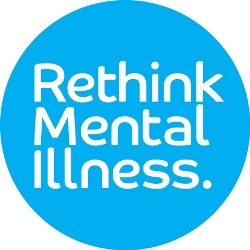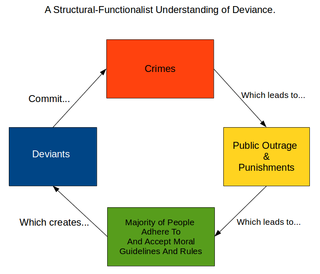Related Research Articles

Mind is a mental health charity in England and Wales. Founded in 1946 as the National Association for Mental Health (NAMH), it celebrated its 70th anniversary in 2016.

Rethink Mental Illness improves the lives of people severely affected by mental illness through their networks of local groups and services, information and campaigns. Their goal is to make sure everyone severely affected by mental illness has a good quality of life .

Forensic social work is the application of social work to questions and issues relating to the law and legal systems. It is a type of social work that involves the application of social work principles and practices in legal, criminal, and civil contexts. It is a specialized branch of social work that focuses on the intersection of law and mental health. Forensic social work is an important part of the criminal justice system and provides an important link between mental health and the legal system.
Turning Point is a health and social care service provider that utilizes a person-centered care approach to support individuals with complex needs, which include drug and alcohol, mental health, learning, and employment-related issues. In 2017, Turning Point secured the contract to provide sexual health services in three London boroughs [1], and Autism Plus became part of the Turning Point group [2]. Many of Turning Point's services are regulated by the Care Quality Commission [3].

Voluntary Service Aberdeen (VSA) Since the charity was first established in 1870, Aberdeen Association of Social Services (VSA) has helped thousands of the most vulnerable people and their families living in communities across the North East of Scotland.
The Sussex Partnership NHS Foundation Trust provides mental health and learning disability services to the people of Brighton & Hove, East Sussex and West Sussex. The trust also provide some community services in Hampshire for children and young people with mental health problem. They work in partnership with those who use their services, with their staff, with NHS and social care agencies and with the voluntary sector.

Education Support is a UK charity "dedicated to improving the mental health and wellbeing of the education workforce".

The Centre for Mental Health is an independent UK mental health charity. It aims to inspire hope, opportunity and a fair chance in life for people of all ages with or at risk of mental ill health. The Centre acts as a bridge between the worlds of research, policy and service provision and believes strongly in the importance of high-quality evidence and analysis. It encourages innovation and advocates for change in policy and practice through focused research, development and training.

The Carnegie United Kingdom Trust is an independent, endowed charitable trust based in Scotland that operates throughout Great Britain and Ireland. Originally established with an endowment from Andrew Carnegie in his birthplace of Dunfermline, it is incorporated by a royal charter and shares purpose-built premises with the Carnegie Trust for the Universities of Scotland, the Carnegie Dunfermline Trust, and the Carnegie Hero Fund Trust.

The Association of Mental Health Providers (AMHP), known until May 2017 as Mental Health Providers Forum (MHPF), is a registered charity based in London and the representative body for voluntary and community sector mental health organisations in England and Wales, working nationally and regionally to influence practice and policy. It aims to improve the range and quality of mental health services by increasing the involvement of the voluntary sector in delivering them, working in partnership with the wider sector and government agencies. Specific projects include the promotion of innovation in the sector, evidencing best practice to achieve the best outcomes for individuals and supporting recovery.
Crisis accommodation is housing provided to people experiencing temporary or ongoing conditions of mental or physical health challenges. It aims to remove them from an otherwise harmful environment and allowing them to improve their situations from a safe and stable environment. Situations that may be alleviated through crisis accommodation include but are not limited to homelessness, domestic violence, elder abuse, and child abuse. Crisis accommodation is typically provided through government organisations, not-for-profit organisations and charities. Crisis accommodation is also known as housing subsidies in other words. Crisis accommodation is provided everywhere around the world across various countries. There are other factors such as availability of the services and reasons like poverty and accumulation of debt that affect homelessness which needs to be taken into account in order to solve it as more people tend to look for urgent support when they are facing this crisis.
Catch22 is a social business, a not for profit business with a social mission which operates in the United Kingdom. Catch22 can trace its roots back 229 years, to the formation of The Philanthropic Society in 1788. Catch22 designs and delivers services that build resilience and aspiration in people and communities.
Revolving Doors is a charitable organisation in the United Kingdom which works across England and Wales. Through research, policy and campaigning work, the organisation aims to improve services for people with multiple needs who are in repeat contact with the criminal justice system.

In a study in Western societies, homeless people have a higher prevalence of mental illness when compared to the general population. They also are more likely to suffer from alcoholism and drug dependency. It is estimated that 20–25% of homeless people, compared with 6% of the non-homeless, have severe mental illness. Others estimate that up to one-third of the homeless have a mental illness. In January 2015, the most extensive survey ever undertaken found 564,708 people were homeless on a given night in the United States. Depending on the age group in question and how homelessness is defined, the consensus estimate as of 2014 was that, at minimum, 25% of the American homeless—140,000 individuals—were seriously mentally ill at any given point in time. 45% percent of the homeless—250,000 individuals—had any mental illness. More would be labeled homeless if these were annual counts rather than point-in-time counts. Being chronically homeless also means that people with mental illnesses are more likely to experience catastrophic health crises requiring medical intervention or resulting in institutionalization within the criminal justice system. Majority of the homeless population do not have a mental illness. Although there is no correlation between homelessness and mental health, those who are dealing with homelessness are struggling with psychological and emotional distress. The Substance Abuse and Mental Health Services Administration conducted a study and found that in 2010, 26.2 percent of sheltered homeless people had a severe mental illness.
Barnet, Enfield and Haringey Mental Health NHS Trust (BEH) is a large provider of integrated mental health and community health services in North London, providing services across Barnet, Enfield, and Haringey. The trust currently employs around 3,000 staff and serves a population of just over a million. The annual income in 2017-18 was c. £210 million.
For many elderly carers of a relative who has a learning or other disability, future planning is an issue. The population of older parents who have children with a learning disability is growing and many of their children are likely to outlive them. In many cases the caring role can span up to seven decades, ending only with their death. Governments and other service providers cannot ignore the pressing needs of this population and their parent and sibling carers. In most countries, family carers provide inexpensive care for a person with a learning disability and other disabilities. This trend is set to continue in England. Demographic changes and the health needs of these two growing populations must be considered against government policy constraints and limited in-home and external care options in order to avoid a crisis. The consequences of not supporting these family carers will lead to crisis management, increase in distress and care giving burdens, and increased spending on unsuitable crisis placements. Housing and financial guidance are issues for caregivers.

LGBT Foundation is a national charity based in Manchester with a wide portfolio of services. With a history dating back nearly 40 years, it campaigns for a fair and equal society where all lesbian, gay, bisexual and trans (LGBT) people are able to reach their full potential. They support over 40,000 people directly every year, and a further 600,000 online. They provide direct services and resources to more LGBT people than any other charity of its kind in the UK.
Social prescribing is when health professionals refer patients to support in the community, in order to improve their health and wellbeing. The concept has gained support in the NHS organisations of the United Kingdom as well as in Ireland and the Netherlands and forms part of the NHS Long Term Plan. The referral mechanisms, target groups, services offered through social prescribing vary across settings. However, the process usually involves screening for non-medical needs and referrals to support services that are typically offered by community-based organizations.
Mental health in Australia has been through a significant shift in the last 50 years, with 20% of Australians experiencing one or more mental health episodes in their lifetimes. Australia runs on a mixed health care system, with both public and private health care streams. The public system includes a government run insurance scheme called Medicare, which itself aids towards mental health schemes. Each state within Australia have their own management plans for mental health treatment, however, the overarching system and spending remains the same.
42nd Street is a mental health charity in Greater Manchester, UK, for young people aged 11–25 years old. It provides free and confidential services to young people who are experiencing difficulties with their mental health and emotional wellbeing, by offering young person-centred and rights-based approaches. It was established as a drop-in service in Manchester city centre in 1980 and moved around 2012 to its current location, the Space Youth Intervention Centre, 87-91 Great Ancoats Street, Manchester M4 5AG.
References
- 1 2 "Annual Review 2018-19" (PDF). Together For Mental Wellbeing. Retrieved 9 December 2022.
- ↑ "Approach". Together For Mental Wellbeing. Retrieved 9 December 2022.
- ↑ Charity Commission accounts